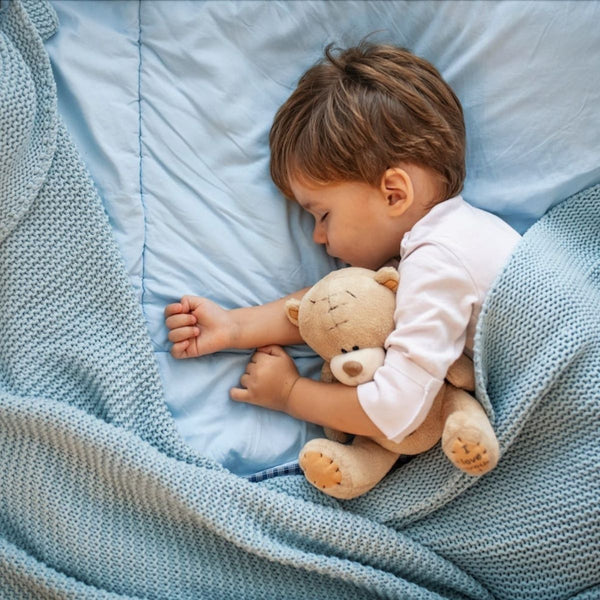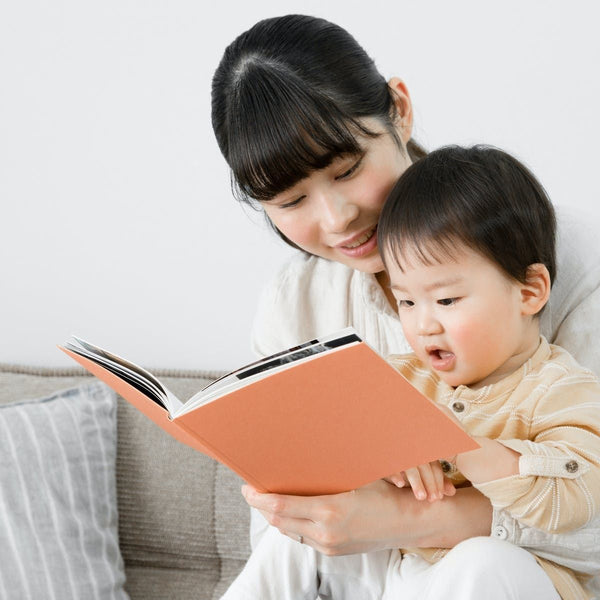How to Stop My Child From Peeing the Bed

Bedwetting is very common in young children. In fact it’s normal for kids up to age of 5 years:
- Up to 50% of 3-year-olds wet their beds.
- Bedwetting can persist up to age of 5 years (10% of kids are still being affected).
- This is more common in boys than girls.
It happens during sleep which is why kids don’t have conscious control over it. As parents, first we have to remember that and reassure our kids. If we’re upset, it’s an amplified feeling to our young children. This could have a negative effect to their self-esteem.
What can you do to help?
We can’t solve or treat bedwetting overnight. Although most children will grow out of it, it still takes time. As parents, what we can do right now is to try to stop it earlier and reduce the psychological and social effects of bedwetting.
It’s a process, which is why we have to deal with the immediate problems first. For example, the smell of urine can stick and hang around on your child. It’s advisable that you give your child a bath or a shower before letting him/her go to school or pre-school. Failure to do this would make your kid feel embarrassed. Worse, other kids might tease your child. This could have a long-term effect to his/her psychological and social development. Often, children remember the teasing for the rest of their lives.
Quick tip: Make sure you give your child a bath or a shower especially when he/she is going to school or pre-school. This is to remove the smell of urine and prevent your child from being teased.
Another immediate problem is actually about how we deal with our children. Even a slight anger shows on how we talk and move. Notice how your child looks at you whenever he/she wets the bed. As you talk and clean the mess, you can immediately notice his/her sense of guilt.
That’s why it’s important to be patient and understanding. Remember, this is normal for kids and it’s outside of their conscious control. If we get upset with our children, they might take actions on their own to stop bedwetting. For example, they might limit how much water they drink so they won’t pee at night (or pee less). Kids ages 5 and below are already good at forming associations among things. They can figure out early that drinking too much water also leads to more frequent peeing.
Quick tip: Be patient and understanding. Focus on the problem instead of blaming the child. Remember that it’s involuntary or outside your child’s control.
Other ways to deal with bedwetting
It’s not clear exactly why bedwetting happens, which is why stopping it for the long term is very challenging. Good news is right now you can still do some things to minimise its effects:
- Discourage your child from consuming caffeinated drinks at night (caffeine can be a mild diuretic). Discouraging caffeinated drinks (which also have high sugar content) is also good for his/her health.
- Use a night-light. This makes kids feel safe at night so they can be encouraged to go to the toilet.
- Try using absorbent pads (these go under the bottom sheet) to keep the bed drier and more comfortable.
Interestingly, encouraging a good night’s sleep may also help in solving bedwetting or minimising its effects. That’s because sufficient and uninterrupted sleep will improve brain functions. Also, waking up your child at 1am and urging him/her to pee won’t help at all. Take note that bedwetting at night is an involuntary process. Whether you wake up your child at 1am or not, bedwetting might still happen at other hours.
To better deal with bedwetting, many parents request counselling for their kids. It’s especially the case when parents suspect that the problem is emotional. For example, the kids had been dry at night for several months then suddenly the problem appears again. It might be a psychological trigger.
What about medications & bladder-training programs?
Enuresis (involuntary urination, especially by kids at night) takes time to treat or solve. We also mentioned earlier that most children will grow out of it without any intervention. But the entire process may take several months or a few years. It’s a lot of nights to endure and you’re thinking you might not have the patience to deal with that same problem again and again.
That’s why many parents try various options including bladder-training programs and medications. For some kids these have produced positive results. However, there are drawbacks to these.
First, the child should be willing (or better, happy) to undergo the bladder-training program. Also, this kind of program is more useful if the child has daytime wetting problems (even when awake there’s difficulty in controlling urination).
Second, medications only yield temporary results. Medications may produce good results especially to older children, but once the medications stop, the problem might appear again. Also, it’s good to rely first on minimally invasive measures as much as possible.
What about enuresis alarms? Are they effective?
A modern enuresis alarm is said to be an efficient and inexpensive treatment for bedwetting without relying on medications. It works because of behavioural conditioning, wherein the alarm is triggered in response to the child’s early urination at night (the alarm detects wetting). The alarm goes loudly and wakes up the parents and/or the child.
This is also a kind of training but can be more effective. When the alarm sounds, the child can be conditioned or trained to go to the bathroom immediately.
Hospitals, doctors and child health nurses can recommend suitable bedwetting alarms. There should be professional assistance so you can observe positive results at the soonest time.
This too, shall pass
It’s just normal for young kids to wet their beds at night. The exact cause is still unclear, but there are effective measures we can take to get through this messy period and help our child overcome this.
It’s recommended to get some professional help if your child wets the bed even at age 6 or 7. At this age kids are more self-aware and bedwetting can ruin their confidence. It’s also recommended to call the doctor when suddenly your child starts wetting the bed again after months of zero problems. It might be a psychological problem or a more serious issue.
As parents, what we can do is cope and realise that it will soon pass anyway. It’s part of raising a child. Also, it’s about helping the kids to overcome this phase positively.







